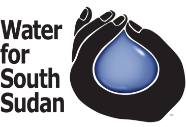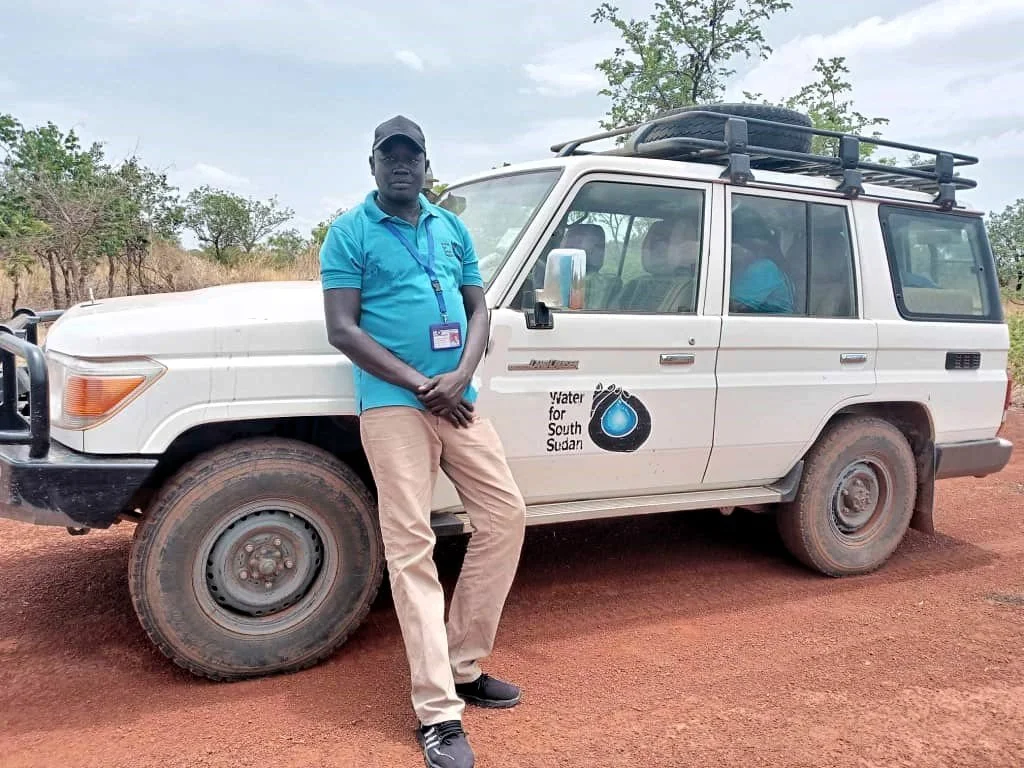A Day in the Life of Luka: Bringing Clean Water to Communities in South Sudan
In the remote villages of South Sudan, a single well can change everything. It brings children clean water to drink, families water for their gardens, and communities a sense of hope. Luka, our dedicated seasonal Rehabilitation Field Supervisor, spends his days on the front lines of this life-changing work—assessing sites, repairing boreholes, and building new wells. We spoke with him to hear firsthand what drives his work, the challenges he faces, and the difference clean water makes for the communities he serves.
What does your role involve?
”My role involves many responsibilities, including assessing sites for borehole repairs or new well construction. I also work closely with community leaders and local authorities—they must agree to the project and help with site clearance before we can start drilling or repairing a well.”
What inspired your work?
”What inspires me most is knowing that the work I do with WFSS helps communities gain access to clean water. I also love meeting people and doing fieldwork—it keeps me motivated every day.”
Is the work dangerous?
”For my team, there isn’t much risk in our work itself. However, communal conflicts can sometimes make certain situations risky, even though the community usually manages these tensions.”
What is the most difficult part of your role?
”The most challenging part is that a well can collapse after drilling, meaning we may have to drill again. Repairs can also be difficult, especially if the old platform is damaged during the process.”
What’s the best thing about your role?
”I enjoy working with different types of soil—rocky or muddy. Using the Polma tool in these areas allows me to complete my work efficiently and achieve our targets on time.”
What motivates you to do the job?
”Having the skills to do the job and the support of my community motivates me to work confidently and effectively.
How many team members are on your team?
”Our team sometimes includes 10–14 members, depending on the project.”
Why repair boreholes instead of digging new ones?
”Repairing boreholes is essential because many communities cannot manage a completely new well. Repairs are simpler and allow faster access to water for the community.”
How do you determine which borehole(s) to repair?
”We conduct an assessment first. Based on the findings, we repair the well, install new pipes if needed, or decide to drill a new well if necessary.”
How long can it take to repair a borehole?
”Repairs usually take 2–3 days, depending on site conditions. Complex tasks, like constructing the platform and testing the well, can take longer.”
Can you describe the process of repairing a borehole, step by step?
Conduct a site assessment
Dismantle the old platform if needed
Clear the site
Repair the well or install a new one
What is the community’s reaction to your work?
”The community deeply appreciates the wells installed by WFSS. There is high demand, especially in areas where locations are far and water is needed for both people and livestock. Many community members support the repair process alongside my team.”
How much do you travel for the role?
”Some boreholes are far away, requiring 1–2 hours of travel. WFSS cannot drill or repair wells in multiple locations at once, so travel is often necessary.”
What are your plans and aspirations for the future?
”I hope WFSS and other NGOs can increase resources in hard-to-reach areas to help communities cultivate gardens and provide additional tools. Hygiene and sanitation are crucial for the future, and additional wells need to be installed. Ideally, new boreholes will be constructed, handed over properly, and recommendations provided for their maintenance.”
Any final thoughts for our readers?
”I would like donors outside South Sudan to help us drill more wells each year so we can reach more beneficiaries. This support would allow WFSS to repair older wells and install new ones, making a real difference in many communities.”
Luka’s dedication is a reminder that lasting change is built well by well, repair by repair, and community by community. His work—and the work of the entire WFSS team—shows that clean water is more than a basic need; it’s the foundation for health, education, and opportunity

